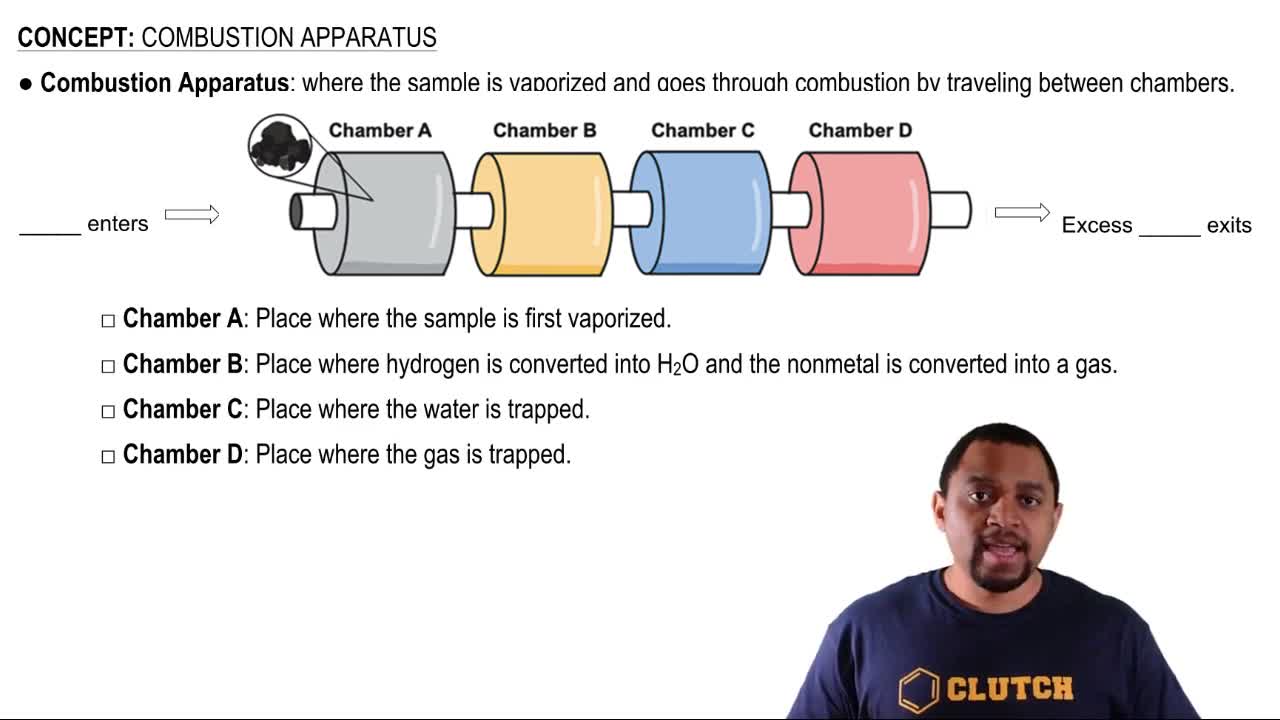A coffee-cup calorimeter of the type shown in Figure 5.18 contains 150.0 g of water at 25.1°C A 121.0-g block of copper metal is heated to 100.4°C by putting it in a beaker of boiling water. The specific heat of Cu(s) is 0.385 J/g-K The Cu is added to the calorimeter, and after a time the contents of the cup reach a constant temperature of 30.1°C. (a) Determine the amount of heat, in J, lost by the copper block.
(b) Assuming that there is an uncertainty of 0.002 °C in each temperature reading and that the masses of samples are measured to 0.001 g, what is the estimated uncertainty in the value calculated for the heat of combustion per mole of caffeine?
 Verified step by step guidance
Verified step by step guidance
Verified Solution
Key Concepts
Uncertainty in Measurements

Heat of Combustion

Propagation of Uncertainty

A coffee-cup calorimeter of the type shown in Figure 5.18 contains 150.0 g of water at 25.1°C A 121.0-g block of copper metal is heated to 100.4°C by putting it in a beaker of boiling water. The specific heat of Cu(s) is 0.385 J/g-K The Cu is added to the calorimeter, and after a time the contents of the cup reach a constant temperature of 30.1°C (b) Determine the amount of heat gained by the water. The specific heat of water is 4.184 J/1gK.
A coffee-cup calorimeter of the type shown in Figure 5.18 contains 150.0 g of water at 25.1°C A 121.0-g block of copper metal is heated to 100.4°C by putting it in a beaker of boiling water. The specific heat of Cu(s) is 0.385 J/g-K The Cu is added to the calorimeter, and after a time the contents of the cup reach a constant temperature of 30.1°C (d) What would be the final temperature of the system if all the heat lost by the copper block were absorbed by the water in the calorimeter?
Use average bond enthalpies from Table 5.4 to estimate Δ𝐻 for the following gas-phase reaction of ethylene, (C2H4), oxygen, and hydrogen to form ethylene glycol (C2H6O2), which is the principal component of automotive antifreeze:
Depending on their specific usage, fuels are judged in part on energy released per unit volume and energy released per unit mass. Three prospective fuels are listed in the following table, along with their densities and molar enthalpies of combustion.
a. Rank the three fuels according to their enthalpy produced per gram.
b. Rank them according to their enthalpy produced per cm3:
The Sun supplies about 1.0 kilowatt of energy for each square meter of surface area (1.0 kW/m2, where a watt=1 J/s). Plants produce the equivalent of about 0.20 g of sucrose (C12H22O11) per hour per square meter. Assuming that the sucrose is produced as follows, calculate the percentage of sunlight used to produce sucrose. 12 CO2(g) + 11 H2O(l) → C12H22O11 + 12 O2(g) H = 5645 kJ
